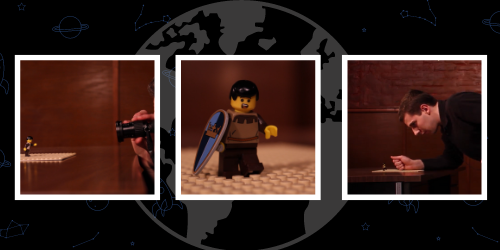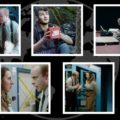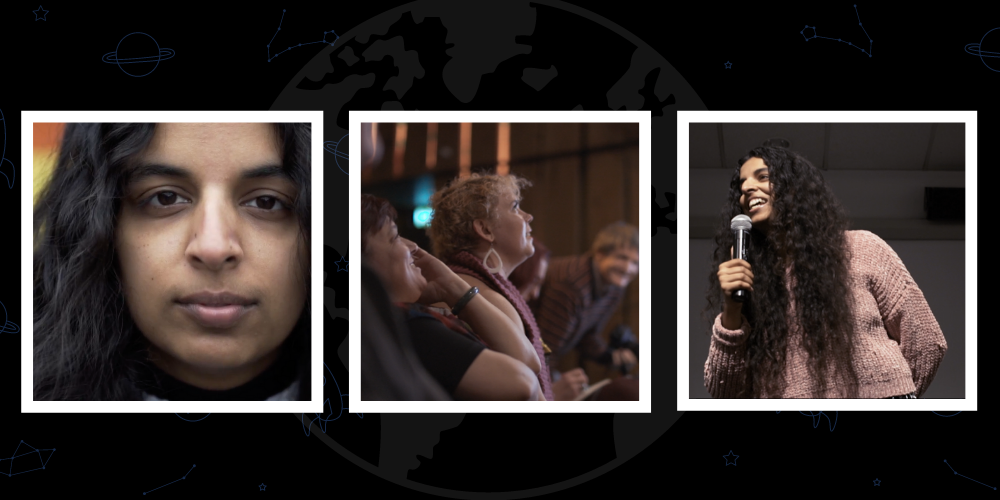這個月的觀眾可以放映 什麼都可以 在星球課堂網絡上. 這部電影由 Planet Classroom 為 Planet Classroom Network 策劃.
什麼都可以 is a short animated film from director Malibu Taetz. What if a Lego man found the prospect of being in an animated film objectionable?
In a short, two-minute, episodic format, this entertaining short brings a small Lego-man to life via animation. The audience is introduced to a unique style of storytelling that opens the door for endless creative possibilities.
全球搜索教育 很高興歡迎 Malibu Taetz 導演.
Would you say animation is a key aspect of your film style?
絕對, I’m very inspired by animation, and I’ve tried to bring an animated feel to a lot of the live-action films I’ve directed too. There’s something about animation that brings emotions down to their essence in a way that’s more universally appealing than pure realism.
什麼都可以 utilizes animation in a unique way. What is your favorite sequence in the film and how did animation enhance its creation?
My favorite sequence to animate was probably where the sword and shield magically appear in Clive’s hands and he just throws them away. You can do random things like that in animation and no one thinks twice about it.
Animation is growing in popularity but also potentially in difficulty with the expansion of key technologies. How can we make the art style more enticing and accessible to the younger generations entering the space?
I actually worry more about the future of live-action than of animation. It seems a lot of recently released “live-action” blockbusters have more digital animation in them than real-world footage. Not that there’s anything wrong with that, but it does seem that pure live-action movies are becoming a rare art form, and there’s great opportunity in that.
還, I think that animation is an extremely young art form and we are barely scratching the surface of what can be done with it. I’d point people in the direction of the UPA style that emerged in the 1950s and challenged conventional ideas of what animation can be. They really proved that the sky’s the limit. With stop motion alone, basically any physical entity can become a character. So I’d encourage people to think outside the box. If you don’t have the budget to do the visual styles of Pixar and Dreamworks, find out what visual style you can create in, and create lots. Once something you’ve done gets an emotional response from another human, you’re there. Even if it’s a collection of scribbles or a pile of rocks moving about.
How important, 如果在所有, is the role of artificial intelligence in the world of digital design and animation? Do you foresee it ever benefitting any of your productions?
That is a question I’ve very recently become very well acquainted with. I’ve been afraid to give an answer. It’s all so new, and very exciting. And yet every time I see an artificially generated image I feel the strong urge to take out some crayons and draw a picture. A picture that there will only ever be one of. A very badly drawn picture that could never be replicated by any machine or other person in a million years. That’s the best answer I can give for now.
How similar, 如果在所有, is animation to programming?
I daresay digital animation is very similar. But stop-motion animation is hardly similar at all. With digital, you set a start position and an end position, and then you try to make the in-between stuff look as natural and unplanned as possible. But with stop-motion, though you can try to do those things, once you take the first frame you can never be quite sure where the last frame will end up. It’s a collaboration between you and the physical world. And so to me it will always be slightly more alive.
Thank you Malibu!
C.M. 魯賓和馬里布泰茲
不要錯過 什麼都可以, now streaming on the Planet Classroom Network. This film is curated for the Planet Classroom Network by Planet Classroom.







最新評論